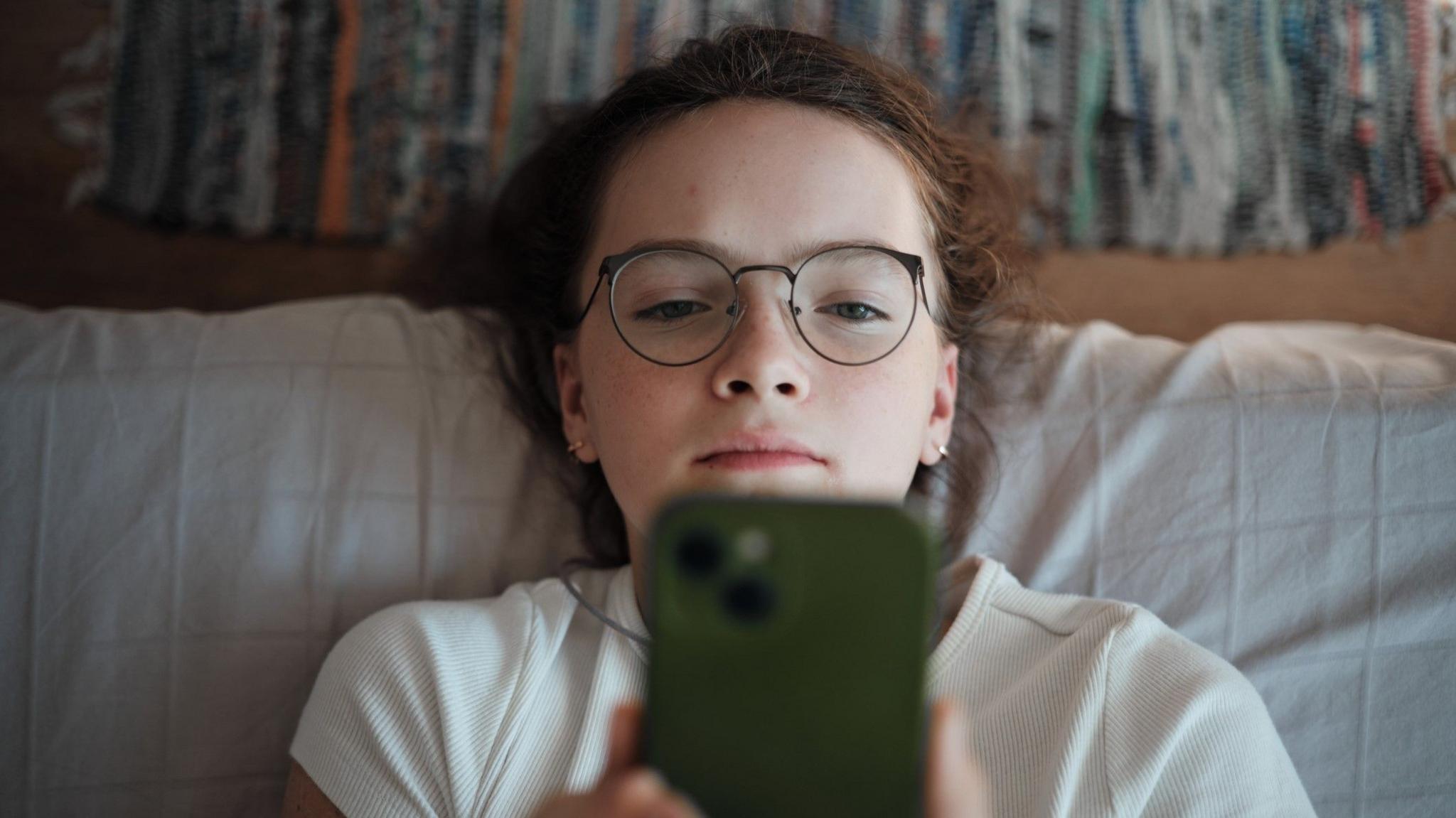Teacher says pupils calmer after smartphone ban
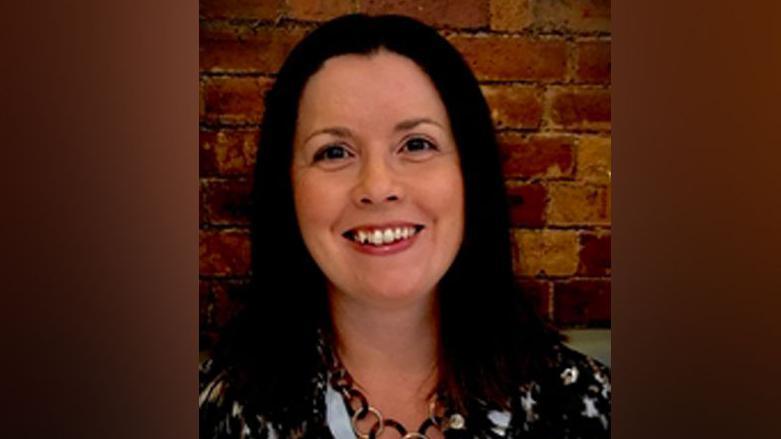
Marie Lally said parents should control what their children were looking at on their phones
- Published
A primary school has said its children are arriving through the gates calmer and more focused after introducing a smartphone ban last month.
Marie Lally, co-head teacher at Earls Barton Primary School, said staff and parents realised the damage phones were causing their pupils' wellbeing.
West Northamptonshire Council has agreed to hold a consultation over whether guidance should be issued to its schools about smartphones.
The national Smartphone Free Childhood initiative has called on parents not to give children smartphones before their 14th birthday.
Ms Lally said a consultation was held with parents and governors before making the decision.
She expected "some push back from parents and children" but said the effect had been nothing but positive.
"Year 6 started this year much calmer, much more focused, and much more childlike and so far the only impact we've seen is positive," explained Ms Lally.
She said she understood that some parents wanted children to have a phone, so they were contactable, but she recommended getting them a "brick phone".
"There is absolutely no need for children as young as 10 and 11 to have a smart phone.
"The information they can access, the images they can see, the messages they are receiving are completely unsolicited and out of parents' control.
"As a mother-of-three, I wish I hadn't bought my eldest child a smartphone."
She said at times, parents needed to be "a bad guy" and establish stricter controls, including limiting screen time and not letting children look at phones at bedtime.
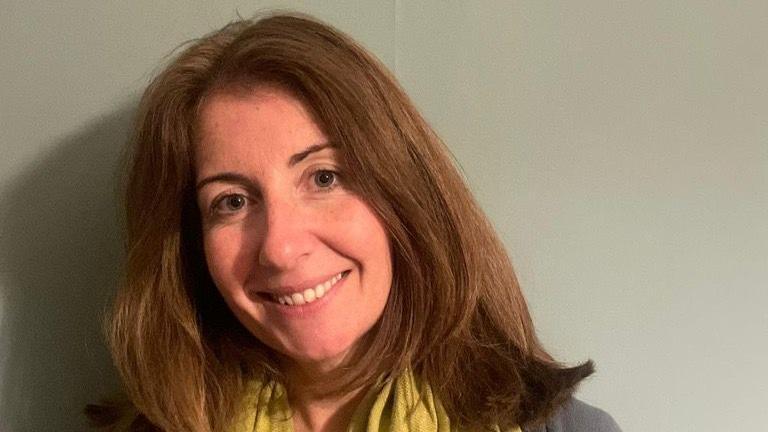
Kate Moore believes children and parents are peer-pressured into getting a smart phone
Katie Moore, part of the Smartphone Free Childhood movement in Northampton, wants mobiles banned in schools.
The mother-of-three said there was too much "inappropriate content" for youngsters to access and she wished she had not given her eldest daughter a smartphone when she went to secondary school.
She told BBC Radio Northampton it brought "more conflict to our day-to-day lives, just trying to get her off it and [her] request for apps".
Her daughter was exposed to animated porn and "a bit of bullying and teasing" on WhatsApp, Ms Moore explained.
"This isn't stuff she was choosing to look at," she added.
"I don't want to repeat the mistakes I made as a parent and I ignored my instincts with my eldest."
This meant she decided to only give her middle son, 11, a brick phone without internet access.
It remains "turned off in his bag" and he will only use it if he needs to contact her.
She said attitudes needed to change and "normalise that smartphones should be delayed for young people".
The Department for Education (DfE) guidance on mobile phones, external sets out four options for schools.
This could include asking pupils to hand devices in upon arrival, storing phones securely, asking they be kept out of sight or unused, or banning them entirely.
Last month, Kathryn Shaw - the Reform UK cabinet member for education at West Northamptonshire Council - said: "We can provide guidance, consultation and leadership, but we cannot enforce policy across trusts."
Get in touch
Do you have a story suggestion for Northamptonshire?
Follow Northamptonshire news on BBC Sounds, Facebook, external, Instagram, external and X, external.
- Published29 September
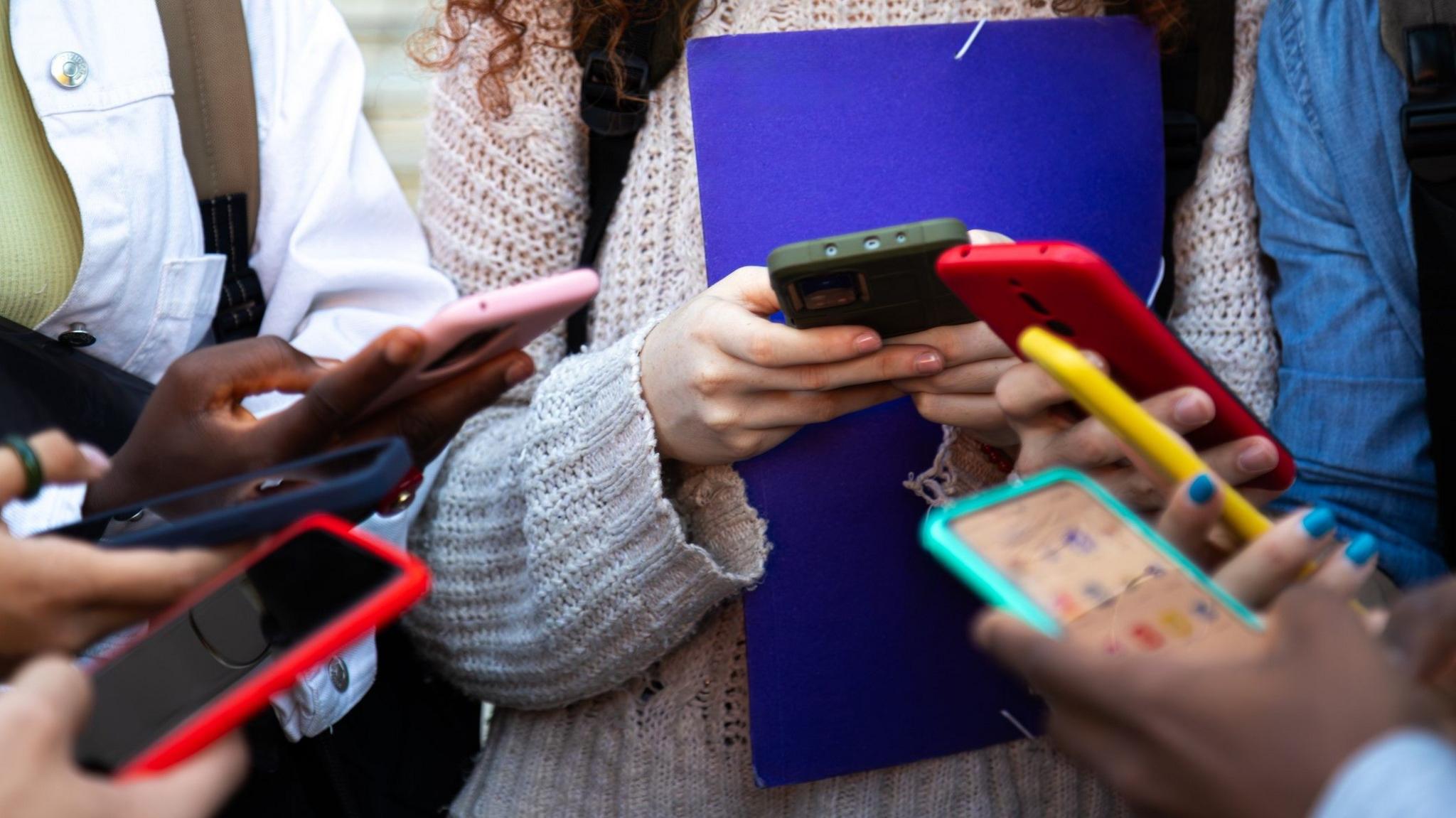
- Published15 June
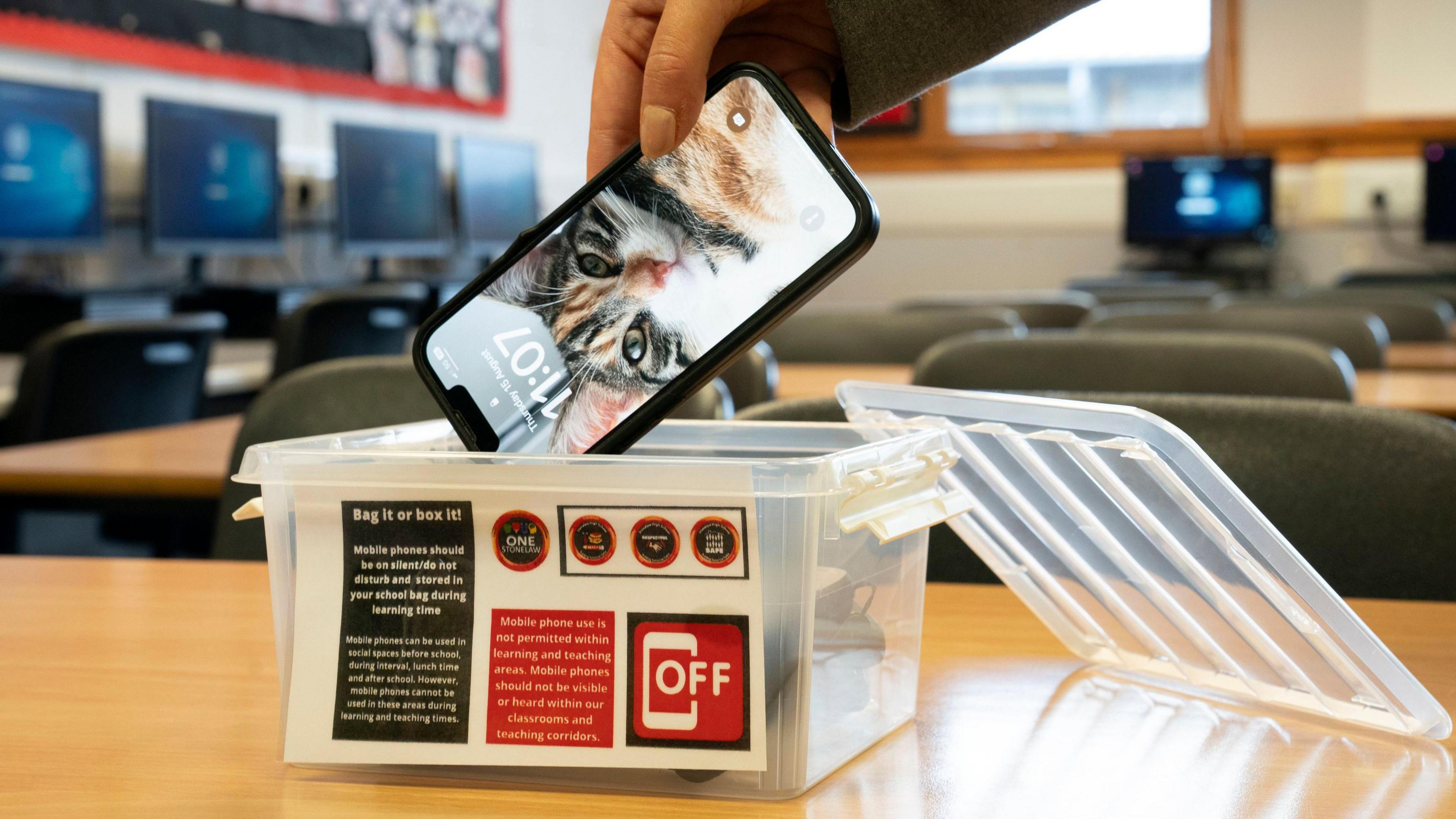
- Published1 June
